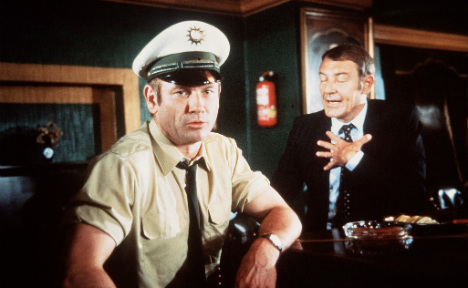The programme has kept millions of German viewers engrossed since 1970 with families breaking off from dinner at 8:15 pm every Sunday and meeting friends at the pub to catch the latest episode of Germany's most popular detective show.
At a time when Netflix and Amazon Prime are eroding the business of traditional television broadcasters, viewership for “Tatort” (Crime Scene) peaked at 13.7 million last November.
And 50 million Germans say they watch at least one episode a year, making it as much of a German TV staple as Bundesliga football matches.
But unlike many modern cop shows, “Tatort” largely avoids gun battles, car chases and skirt-chasing super cops.
Instead, the ARD public television show still stays mostly true to its original concept – that its cases and characters must be imaginable in real life.
The trickiest question about the whodunnit series therefore is the secret of its success.
“That's a great mystery that no-one seems to have an explanation for,” said Peter Dörfler, co-writer of a documentary on the cult show that is due to be broadcast after the 1,000th episode screens on November 13th.
Regional flair
Some argue it has held up a mirror to a changing society, moving from crimes of passion and bank robberies to human trafficking, IT hackers and racist hate crimes.
Episodes have sought to tackle broader societal topics, from assisted suicide to jihadism – the topic of last Sunday's episode, which was also heatedly discussed in a talk show afterwards.
But the key winning concept may be the show's regional character – with plots rotating among 22 separate detective teams in Germany, Switzerland and Austria, each speaking local slangs and dialects.
“Germany is not just one big chunk,” said Gunther Witte, who dreamed up the series. “There is Bavaria, the North, Mecklenburg-Western Pomerania where (Chancellor) Angela Merkel grew up, Berlin…
“Each region brings something to Germany. That applies to the culture as well as for the television series. The regional characteristic assumes an important role in 'Tatort'.”
Witte himself had first expected the series to run over two years – but 46 years later, it is as popular as ever.
“I find it a great series because it addresses current subjects, and it's also very German,” said Monika Kwiatkowski, 38, who was sitting in the bar with a friend to watch the latest episode.
The show “doesn't just show the cities where the action is taking place, but also the reality”, she added.
A silence descended in the bar as the opening sequence of the latest episode rolled – a blue and white shooting target set to a theme tune that has not changed since the first episode screened on November 29th, 1970.
Actress Maria Furtwängler, who will play the detective Charlotte Lindholm in the 1,000th episode, pointed to the uniqueness of each episode thanks to the different production teams and locations.
“The brand is written on the box, but inside, there is diversity. That's what makes it go on and on,” she said.
Alexander Adolph, who was tasked with filming the special anniversary episode, said the series “offers a latitude of artistic freedom”.
“As a spectator, 'Tatort' is television history as I have watched it since I was a child,” he said. “At that time, it was sacred.”
Many, like Gerhad Elfers, who was also at Roberta bar, nurse a certain nostalgia for the 1980s episodes when the most popular detective, Horst Schimanski, held court.
Schimanski, played by recently deceased actor Goetz George, was a detective who was rough and unkempt with an anti-authoritarian streak.
“I have been a fan for a long time, when 'Tatort' was still very good. But it's still such a German legend that I still watch it from time to time,” said Elfers.



 Please whitelist us to continue reading.
Please whitelist us to continue reading.
Member comments